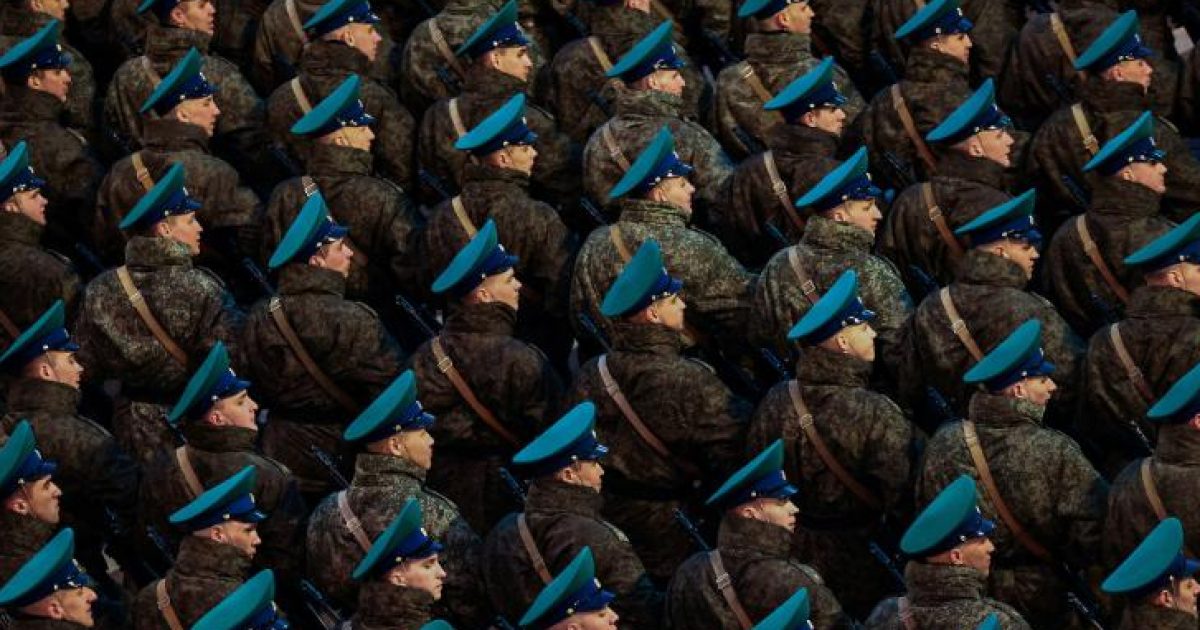The Russian invasion of Ukraine means fewer Russian tanks and other military equipment will be seen in Moscow's Red Square on May 9, when the country commemorates victory over Nazi Germany in World War II.
However, patriotic enthusiasm can be more powerful than ever.
Victory Day this year will not only honor the conflict that ended 77 years ago.
Many Russians will also think about the thousands of troops found in neighboring Ukraine.
Signs of support for the military have increased since the Russian invasion of Ukraine began on February 24, especially through the "Z" symbol, which appears on billboards, streets, subways, television and social networks.
The Kremlin does not refer to the fighting in Ukraine as a "war", but only calls the decision by Russian President Vladimir Putin a "special military operation."
Some believe Putin could use the day to declare the operation a war in order to boost Russia's national commitment to it.
War and remembrance
The Soviet Union lost 27 million people in World War II, which it called the Great Patriotic War.
The conflict, which has devastated entire cities and regions, has caused much pain and left a grave in the national psyche.
Victory Day is a rare event among deep national divisions, which is admired by all political players.
The Kremlin has consistently used that sentiment to encourage patriotic pride and to claim that Russia has a role as a world power.
The annual celebrations include a massive military parade in Red Square, including tanks, fighter jets and intercontinental ballistic missiles.
This year is expected to have far fewer weapons than last year, thus revealing military engagement in Ukraine.
Fighting the "neo-Nazis"
When ordering the invasion, Putin said his goal was to "demilitarize" Ukraine so as to avoid military threat from "neo-Nazis" - rhetoric condemned by Ukraine and the West as a false pretext for war.
To support their claim, Putin and his officials have cited those who were once nationalist leaders of far-right groups in Ukraine, Stepan Bandera and Roman Shukhevych, who joined the Nazis in World War II and have used Nazi symbols.
This rhetoric has been exploited by the Kremlin to increase public support for the war, as Russia is facing heavy losses in people and military equipment, but also economic damage as a result of Western sanctions.
Ukrainian President Volodymyr Zelenskyy, who is Jewish, has denied the Kremlin's claim of "denazification."
Russian Foreign Minister Sergei Lavrov has drawn parallels between Zelensky and Adolf Hitler - a statement that has provoked much anger from Israel.
Accelerating the offensive?
Some in Ukraine and the West expect Putin to make progress ahead of the May 9 holiday, as an attempt to present it afterwards as a decisive victory and as a reason to walk away from what appears to be a bloody conflict threatening state stability.
Following failed attempts to seize control of Kiev and other major cities in northern Ukraine - in the first phase of the war - the Kremlin has shifted its focus to the eastern Donbas region, where Moscow-backed separatists have been fighting Ukrainian government forces since year 2014.
The conflict erupted weeks after Russia annexed the Ukrainian peninsula of Crimea.
The Russian army has rearmed and resupplied its forces that have withdrawn from Kiev and launched them towards the Donbas, with the aim of besieging and destroying the Ukrainian troops that are concentrated there.
However, Russian forces have faced fierce Ukrainian resistance, so they have made little progress, dampening the Kremlin's hopes for a quick victory.
Great victories seem impossible before May 9th.
"Our army will not artificially link its actions to any date, including Victory Day," Russian Foreign Minister Sergei Lavrov said days ago.
Doubling the price of war
Some hardline Russians have criticized the Kremlin for its limited use of force and called for national mobilization.
Some Western officials believe Putin could use May 9 to formally declare war and fully mobilize the population to increase the number of offensive troops.
"He created the ground to say, 'Look, this is a war against the Nazis, and I need more people,'" British Foreign Secretary Ben Wallace told LBC Radio.
Ukrainian intelligence chief Kyrylo Budanov issued a similar warning on May 2, saying Russia had begun preparations for widespread mobilization.
Kremlin spokesman Dmitry Peskov dismissed the allegations as "nonsense".
Russian authorities have claimed that only volunteer soldiers are fighting in Ukraine, although many recruits were taken prisoner in the early days of the war.
The Russian military serves about 1 million people - including 400,000 contract soldiers, including 147,000 ground forces.
Western officials have estimated that the initial invading force has grown to about 180,000.
The military has acknowledged losing 1,351 soldiers as of March 25 and has not made any further updates since.
Western officials have said Russia's losses are far greater and that a quarter of Moscow's initial force has become unfit for combat.
If the war lasts, the current Russian forces may not be enough to continue operations, forcing the Kremlin to depend on poorly trained recruits or call for reservists.
The Kremlin faces tough choices between trying to win the war by limited force, or by strengthening troops in Ukraine with reservists, a move that could spark public outrage and destabilize the political situation.
/ rel /
